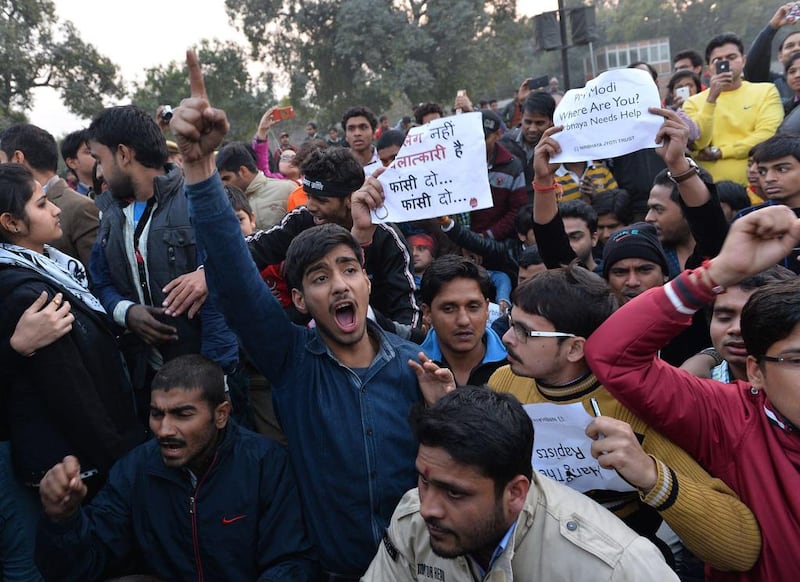‘Parts of her skull have been reduced to powder,” say doctors of a Delhi hospital treating the journalist Aparna Kalra. She was attacked last week while taking a stroll in a public park. Her crime? She objected to three men drinking in the family-friendly park.
The initial investigation had revealed that the men tried to drag her into the bushes after they passed lewd comments at her. Kalra, 45, was hit when she resisted, causing severe brain injuries.
The nature of the attack is a reminder of the gruesome Delhi gang rape of a student aboard a moving bus in December 2012, when the criminals used an iron rod that fatally injured the victim. The question is, in a busy park, how did iron rods become available so easily?
In both crimes, the perpetrators were inebriated and came from the city slums. Furthermore, both attacks took place in a public place. Such similarities in the crimes point to lapses on the part of the local authorities.
But the most unsettling similarity is that, in both cases, the culprits wanted to “teach a lesson” to their victims. In an interview with the British documentary filmmaker Lesley Unwin, Mukesh Singh, one of the attackers in the 2012 rape case, explained that the woman’s efforts to fight back enraged them so much that they disembowelled her. He said that she probably would have survived if she had been submissive. The victim, popularly known as Nirbhaya, succumbed to her injuries. In Kalra’s case, she was “taught a lesson” because she dared to speak up against antisocial behaviour.
Following the rape and murder of Nirbhaya, youth and adults alike poured on to the streets of Delhi demanding justice. It took just a few moments for those protests to spread to other parts of the country. Writers expressed outrage while legislators responded by setting up a committee that recommended changes to India’s rape laws. Some amendments were made fairly quickly. But shockingly, Nirbhaya’s memory seems to have faded equally fast from Delhi’s collective conscience.
This partly explains why so little seems to have changed in terms of culture, as well as the safety of women in India, over the past four years.
Slum dwellers, the egregious perpetrators in both cases, shine an uncomfortable light not just on the underbelly of Indian society, but also on areas that are in desperate need of reform. These criminals often come from the deprived section of society – both financially and emotionally. There is little wonder then that slums become breeding grounds for criminals.
The appalling lack of sympathy for human life, displayed in both cases, is chilling. However, we also know that empathy is something that is not inherent in humans. It is a quality that is learnt from experience – when it is extended to us – especially during early childhood.
Sadly, India is littered with such breeding grounds. What’s more worrying is that they are proliferating in urban areas. It’s women, who are increasingly going out to work, who have been seeing more clearly the clashes between different mindsets, as well as the haves and the have-nots, play out in the ugliest of ways. Compared to Nirbhaya’s case, the response to Kalra’s attack has been muted. It has not made a headline in the international media, while the national media has covered the crime without raising much hue and cry. That’s understandable considering the intensity of brutality in the previous case, but India cannot afford to remain silent over these issues. There needs to be a lot of noise over the degenerating mindset and the lack of education and opportunities, especially among the marginalised sections of society, so as to bring about a change.
India is a country that prides itself on hospitality – even to strangers – and where protests are organised against any form of injustice. Yet, it is shocking that no one came to the rescue of Kalra or raised an alarm even though the park was full of people when the attack took place.
In the Indian epic Ramayana, Rama vanquished Ravana, the evil king of Lanka, for kidnapping his wife, Sita. When Ravana’s younger brother Vibhishana congratulated Rama on his victory and said that the city of Lanka was his, Rama responded by saying that his motherland was more beautiful than all the heavens he might wish for him to attain. Thereafter, he returns to his own kingdom. It’s this beauty that Indians need to aspire to regain.
Priya Virmani is a commentator on politics and economics





